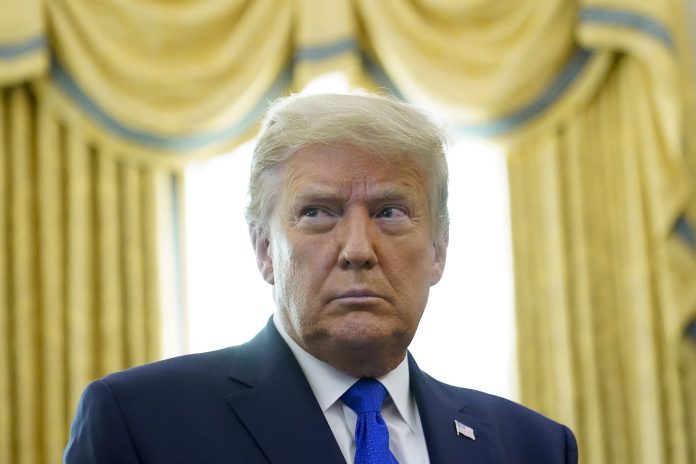On Tuesday, the Colorado Supreme Court declared that due to the January 6 riot at the U.S. Capitol, Donald Trump is not qualified to run for president in 2024.
Based on the 14th Amendment, this significant ruling bars Trump from inclusion in the presidential primary ballot. It also lays the foundation for a legal confrontation at the highest national court concerning the outcome of the forthcoming election.
In a 4-3 ruling, which is expected to be contested and likely to provoke strong reactions from both Trump’s supporters and those who have criticized his actions on January 6, the majority of Colorado’s seven justices asserted that the former president had “engaged in insurrection.”
The justices wrote, “President Trump’s direct and express efforts, over several months, exhorting his supporters to march to the Capitol to prevent what he falsely characterized as an alleged fraud on the people of this country were indisputably overt and voluntary.
“Moreover, the evidence amply showed that President Trump undertook all these actions to aid and further a common unlawful purpose that he himself conceived and set in motion: prevent Congress from certifying the 2020 presidential election and stop the peaceful transfer of power.”
In light of this, the ruling states, “[W]e conclude that because President Trump is disqualified from holding the office of President under Section Three, it would be a wrongful act under the Election Code for the Secretary to list President Trump as a candidate on the presidential primary ballot.”
The justices, pending appeal, have temporarily suspended their decision until January 4.
Three judges dissented from the ruling: Chief Justice Brian D. Boatright, Justices Carlos A. Samour Jr. and Maria E. Berkenkotter.
In his dissent, Boatright argued that the absence of an insurrection-related conviction against Trump should have led to the dismissal of the case.
Samour contended that the majority’s opinion contradicts the due process doctrine.
This ruling concludes a prolonged challenge in Colorado to Trump’s eligibility for the ballot under Section 3 of the 14th Amendment.
This constitutional clause, dating back to the Civil War era, renders former officeholders ineligible for re-election if they took an oath to support the Constitution and subsequently engaged in “insurrection or rebellion” against the U.S.






